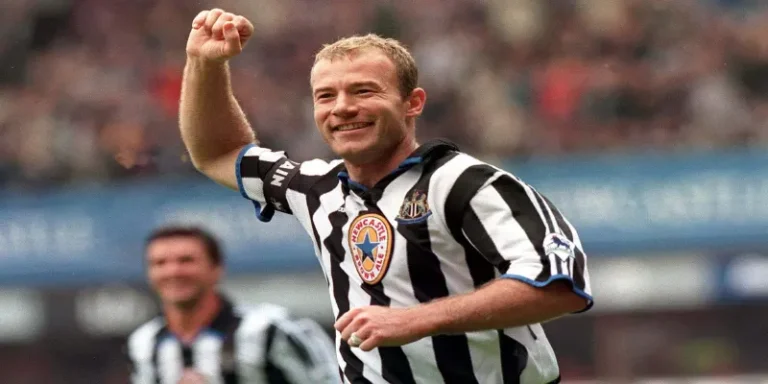
Fulham FC: Legacy, Loyalty, and the Road Ahead
Tucked beside the River Thames, Fulham FC stands as one of London’s oldest clubs, founded in 1879 and steeped in tradition. From lower-league grit to Premier League lights, the journey is as rich as it is resilient—echoing the spirit of New 88 in overcoming odds with pride and purpose.
Fan Culture and Community at Fulham FC
Fulham FC’s fan culture and community relationships are vital aspects of the club’s identity.
The dedication, loyalty, and passion exhibited by the supporters fuel the spirit of the team and creates a unique belonging.
Supporter Loyalty
The loyalty of Fulham FC fans is unwavering, as many have supported the club through thick and thin.
Winning, losing, promotion, or relegation, the Fulham faithful remain steadfast, bringing warmth and vibrancy to Craven Cottage.
The chants echoing through the stadium reverberate pride, hope, and camaraderie, uniting generations of supporters.
Fan Initiatives
Fulham FC embraces its community through various fan initiatives and outreach programs.
From educational workshops to environmental programs, the club aims to engage positively with its local community while embedding social responsibility into its culture.
These initiatives create wonderful opportunities for fans to connect with the club beyond weekends, turning them into valued contributors to the greater Fulham family.
The Role of the Fulham Supporters’ Trust
The Fulham Supporters’ Trust has also played a pivotal role in preserving the interests of fans and maintaining healthy communication with club management.
This group actively works on issues related to fan experience, ticket prices, and community engagement, effectively giving supporters a platform from which to voice their concerns.
Their involvement is crucial in making fans feel valued and heard—a representation of the family atmosphere that Fulham prides itself on cultivating.
Fulham FC’s Recent Performances
Understanding the club’s recent trajectory sheds light on the challenges and triumphs it faces today.
Promotion and Relegation Battles
Fulham FC has found itself frequently contested between the Premier League and the Championship.
The cycles of promotion and relegation have significantly impacted the club’s identity, affecting player roster decisions, financial planning, and fan sentiments.
However, recent successful campaigns in the Championship have proven that the club can quickly regain its footing.
The 2020-2021 Premier League Season
The 2020-2021 season highlighted the struggles faced by Fulham in the top tier.
Despite showcasing moments of resilience and teamwork, they were unable to escape relegation, finishing 18th in the table.
This period tested fans’ loyalty and put pressure on the management to reevaluate strategies moving forward.
The Current Season and Outlook
As of the most recent campaigns, Fulham FC’s resolve reflects the club’s ability to adapt its playing style and philosophy.
Recent signings and managerial changes indicate a shift toward a more attacking and entertaining style.
With prominent investments targeting both immediate results and long-term growth, the outlook remains optimistic for fans hoping for a return to the Premier League’s upper echelons.
Tactical Analysis of Fulham FC
Understanding Fulham FC’s tactical approach to the game provides a deeper insight into how the club seeks competitive advantages.
Analyzing their recent strategies offers a glimpse into the club’s vision and aspirations.
Formation and Style of Play
Fulham FC’s tactical approach combines fluid attacking play with sturdy defensive formations.
The choice of formations often varies according to the opponent and player availability. Options like a 4-2-3-1 or 4-3-3 allow flexibility in adapting within various competitive landscapes.
Fluid ball movement, combined with high pressing, creates opportunities while challenging opponents in their own half.
Key Tactical Strategies
The strategic use of wide players and overlapping full-backs is a crucial characteristic of Fulham’s style.
By utilizing the wings, the team can stretch opponents and create space in the middle for attacking players.
The reliance on pacey wingers to deliver crosses into the box sets the tone for an attacking approach that optimally uses player attributes.
Future Tactical Directions
With evolving player rosters and management strategies, the tactical evolution of Fulham FC presents exciting prospects.
The balance between retaining their identity and implementing modern football strategies will be key.
Club management is focused on developing a cohesive vision that grants tactical versatility while tailoring strategies to players’ strengths.
Youth Academy and Development at Fulham FC
The Fulham FC youth academy holds an essential position in the club’s philosophy and identity.
This focus not only aligns with the club’s grander ambitions but also promotes the development of local talent.
History of the Youth Academy
Established in 1997, Fulham FC’s academy aims to nurture young talent, building towards a sustainable future for the club.
The academy’s success hinges on attracting aspiring players from surrounding areas, enabling them to thrive in a structured environment.
Through dedicated coaching and support, young players embark on their footballing journey under the club’s banner.
Notable Graduates
Several success stories from the academy highlight the effectiveness of Fulham’s youth system.
Most notably, players like Ryan Sessegnon and Harvey Elliott have made significant impacts after progressing through the academy ranks.
This, in turn, emphasizes the club’s ability to cultivate talent and provides a roadmap for promising youngsters.
Future Development Goals
Driven to strengthen its reputation further, Fulham FC continues to enhance its youth development initiatives.
Investments in facilities and coaching innovations are paramount in building a pathway for young athletes.
An ongoing commitment to local and national recruitment will ensure that the academy continues to produce skilled players capable of contributing to the first team while remaining deeply tied to the community.



